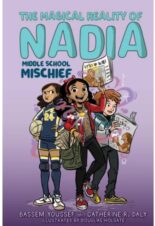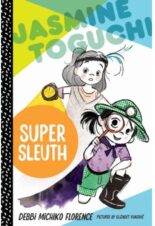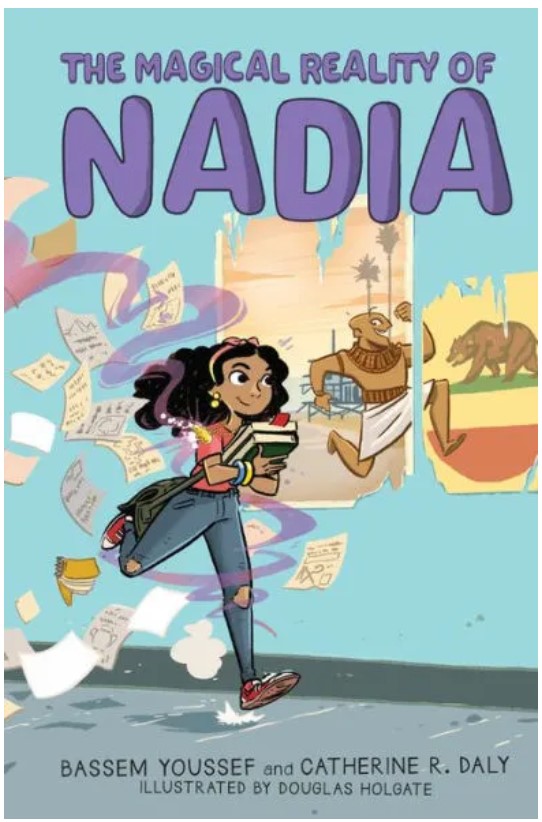
Buy This Book
Other books by Bassem Youssef & Catherine R. Daly
“We all have many things that define us—ethnicity, religion, our likes and dislikes. These things make us who we are. They are a part of us. And they matter,” Nadia. –The Magical Reality of Nadia
The Magical Reality of Nadia
by Bassem Youssef & Catherine R. Daly
AR Test, Diverse Characters, Must Read, Teaches About Culture
8+
Score
4.5
176
Nadia loves fun facts. Here are a few facts about her:
- She collects bobbleheads — she has 77 so far.
- She moved from Egypt to America when she was six years old.
- The hippo amulet she wears is ancient…as in it’s literally from ancient Egypt.
- She’s going to win the contest to design a new exhibit at the local museum. Because how cool would that be?!
Okay, so that last one isn’t a fact just yet, but Nadia has plans to make it one. But then a new kid shows up and teases Nadia about her Egyptian heritage. It’s totally unexpected and totally throws her off her game.
Then something else happens that Nadia can’t explain: Her amulet starts glowing! She soon discovers that the hippo is holding a hilarious — and helpful — secret. Can she use it to confront the new kid and win the contest?
Nadia often acts like a know-it-all who loves telling people interesting facts about random subjects. Despite this, Nadia is a likable protagonist who learns that “being a leader didn’t mean telling people what to do or doing it all yourself. It was about guiding everyone else to come to a solution together.” Nadia’s quirky personality will draw readers into the story, but it is Titi who is the star of the story.
While living in Ancient Egypt, a magician curses Titi by sending him into a hippo amulet. When Nadia purchases the amulet, she discovers the secret to breaking the curse—Titi can only be set free by helping Nadia six times. Titi is energetic, optimistic, and funny. And as a teacher, he has plenty of wisdom to impart. For instance, Nadia and Titi jump into the parable of “The Eloquent Peasant.” The parable comes to life in comic-style panels that educate about Egyptian history in a unique and entertaining way. While in the comic, Nadia learns a powerful lesson about how to deal with a bully. Even though Titi lived in a different time period, he is still able to help Nadia with her friendship problems.
One of Nadia’s problems is that the new kid, Jason, is very vocal about his dislike of Nadia’s Egyptian heritage. For example, he makes fun of Nadia’s lunch because “it smells weird.” In addition, he says he only eats “American food. . . not desert people food.” However, Jason’s mean comments are not just confined to school. While at the fall fair, Jason asks the DJ to play the song “Walk Like an Egyptian.” Then, Jason “took a couple of staggering steps forward with his arms in the awkward position. He moved his head forward and back like a pigeon, too, a huge grin on his face.” In this situation, Nadia uses the parable of “The Eloquent Peasant” to find a solution, but not everything goes as she planned.
At first, Jason’s behavior makes Nadia want to hide her Egyptian heritage, but her parents explain how they handle microaggressions. When a cashier at the local supermarket made rude comments, Nadia’s Mama began talking about things they had in common. Mama said, “It showed her that we aren’t so different after all. . . Getting to know me has allowed her view to shift.”
The Magical Reality of Nadia uses humor to highlight the importance of finding common ground with others. Nadia points out that, “Unless you are Native American, we all have an immigrant story in our past. Each of us is here today because one of our ancestors came to America and started a life for their family.” While most of the story is in traditional text, the book includes sections of black-and-white comics as well as lively black-and-white illustrations throughout.
While The Magical Reality of Nadia is humorous and entertaining, the story hits on topics of prejudice, friendship, and courage. Nadia’s story will help readers have empathy for people who are different from them and in the end, the lessons from The Magical Reality of Nadia will stay with readers long after they put the book down.
Readers looking for another book about immigrating to another country should also read Other Words for Home by Jasmine Warga and Efrén Divided by Ernesto Cisneros. However, if you’d like to learn more about Ancient Egypt’s culture, check out the Kid Detective Zet Series by Scott Peters and the TombQuest Series by Michael Northrop.
Sexual Content
- None
Violence
- During summer vacation, one of Nadia’s friends went to London. Afterward, Nadia asks, “Did you know they used to display chopped-off heads on the original London Bridge?”
- Jason goes to the museum and destroys Nadia and her friends’ project.
- While at an ice cream shop, Jason starts making fun of Nadia’s heritage. Nadia gets upset with “her hands balling into fists. She’d never hit anyone before, but there was a first time for everything. She lunged at Jason . . . and tripped over her backpack. Jason laughed, but as Nadia fell, she knocked into him and he lost his balance falling backwards onto the table.” Jason falls onto an ice cream sundae. One of Jason’s friends says, “It looks like you pooped your pants!”
- Nadia’s parents left Egypt during the Arab Spring. Her mom says, “People who opposed the government were still being imprisoned, and tortured, and killed. We realized we did not want to raise you in that kind of environment.”
Drugs and Alcohol
- None
Language
- A teacher teases a magician. Afterwards, the magician calls the teacher a fool.
- Titi tells Nadia to “close your mouth. You look like Hatmehit’s hat! Hatmehit was an ancient Egyptian fish goddess.”
- Freakin’ and heck are both used once.
- After reading a parable, Nadia says one of the characters is a doofus and a fool.
- When Nadia tells her friend they “can’t toss a football in a museum,” her friend tells her to “Calm down, Grandma.”
- Jason calls one of his friends an idiot.
- Jason calls Nadia an “Egyptian Queen.” Then he says, “You don’t even belong here. Why don’t you just go back where you came from?!”
Supernatural
- A teacher is cursed by an angry magician. “The next thing the teacher knew, there was a great wind and a loud sucking noise. Then everything turned black.” The teacher is confined to an Egyptian necklace.
- “Ancient Egyptians wore hippo amulets to ward off evil.”
- Nadia held her hippo amulet and asked for help. Then, “Nadia went over to the desk . . . There, on the college-ruled pages of what was to be her math notebook, a little animated man was jumping up and down, waving wildly at her.”
- At first, Nadia is confused when she discovers “a little animated man [Titi] haunting her math notebook!” But then she realizes that if she shuts the notebook, the man disappears. However, Titi and Nadia soon set boundaries that allow the two to communicate when appropriate.
Spiritual Content
- One of Nadia’s fun facts revolves around the Ancient Egyptian’s beliefs about death. The Book of the Dead says “When a person died and was judged by the ancient gods, they had to swear to two things: that they had not lied, or cheated, or killed, or harmed others; and that they preserved the Nile River and kept it pure. . .”
Other books by Bassem Youssef & Catherine R. Daly
“We all have many things that define us—ethnicity, religion, our likes and dislikes. These things make us who we are. They are a part of us. And they matter,” Nadia. –The Magical Reality of Nadia
Latest Reviews

The Terror of the Southlands
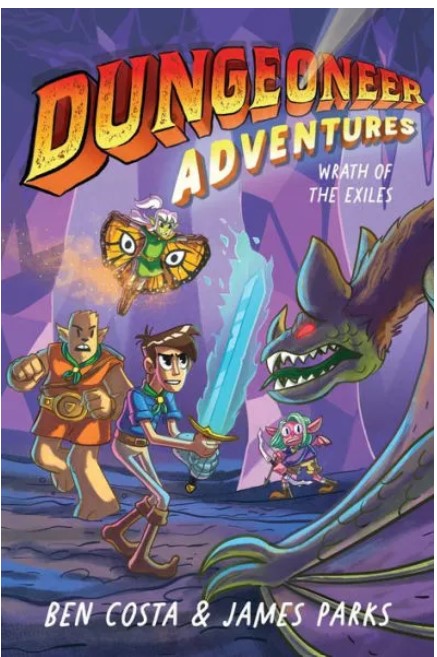
Wrath of the Exiles

Jasmine Toguchi, Drummer Girl

The Pout-Pout Fish Goes to School
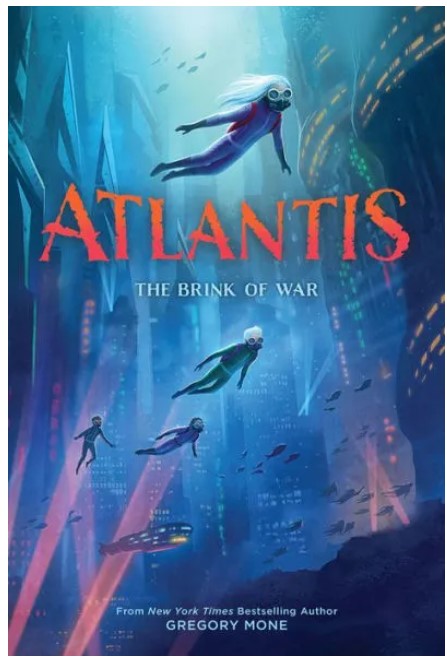
The Brink of War

Get Well, Crabby

The Pet Store Sprite

Stacey’s Remarkable Books

Lucy Maud Montgomery: A Writer’s Life

